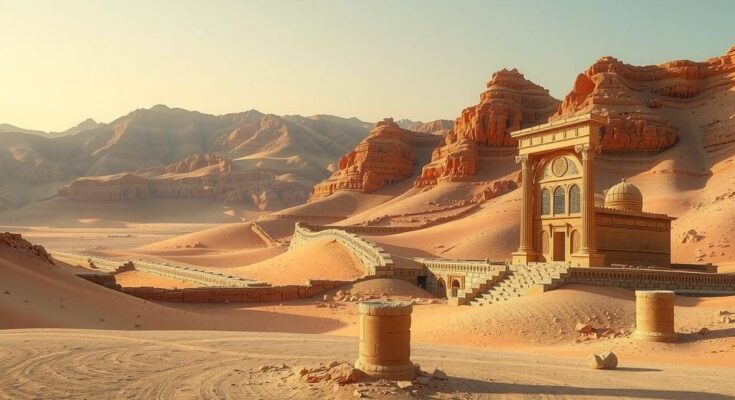Syria’s government agrees to grant immediate access to UN nuclear inspectors to former suspected nuclear sites. Grossi reports interest in future nuclear energy, with optimism about inspection progress and cooperation. IAEA to monitor negotiations regarding Iran’s nuclear program.
In a significant development, Syria’s new government has agreed to grant immediate access to United Nations nuclear inspectors to several suspected nuclear sites. This announcement was made by Rafael Mariano Grossi, head of the International Atomic Energy Agency (IAEA), during an exclusive interview in Damascus, where he met with President Ahmad al-Sharaa and other officials on Wednesday.
Grossi noted that al-Sharaa expressed a future interest in pursuing nuclear energy, saying, “Why not?” The IAEA aims to clarify past activities believed to be linked to nuclear weapons. Grossi described the new Syrian leadership as dedicated to enhancing cooperation with the international community, expressing optimism that inspections could wrap up in a matter of months.
The IAEA’s previous visit to some sites occurred in 2024 while former President Bashar Assad was still in power. Following Assad’s fall in December, the agency has been striving to restore access to locations associated with Syria’s nuclear initiatives. Assad’s regime was suspected to have run a covert nuclear program including an undeclared reactor built by North Korea, situated in eastern Deir el-Zour.
Concerns have been raised about this reactor, which the IAEA stated was “not configured to produce electricity,” leading to suspicions that Syria may have aimed to develop nuclear weapons with it—specifically by producing weapons-grade plutonium. The reactor’s existence was revealed only after Israeli airstrikes in 2007 destroyed the facility, after which Syria dismantled the site and did not completely address the IAEA’s inquiries.
Grossi indicated that inspectors are scheduled to revisit the reactor site in Deir el-Zour, alongside three other related locations. Additional IAEA-protected sites include a neutron source reactor in Damascus and a facility in Homs equipped for processing yellow-cake uranium. He emphasized the agency’s intention to concentrate their focus on sites that are of genuine interest.
While no signs of radiation releases have been detected, there are concerns that “enriched uranium can be lying somewhere” and might be susceptible to smuggling or trafficking. Grossi recognized al-Sharaa’s openness towards collaboration, stating the new president has shown a “very positive disposition to talk to us.”
In addition to resuming main inspections, the IAEA is ready to assist in modernizing the radiotherapy and nuclear medicine capabilities in Syria, which have been severely damaged due to the lengthy civil war. Grossi mentioned, “The president has expressed to me he’s interested in exploring, in the future, nuclear energy as well.”
Syria’s interest in nuclear energy mirrors a wider trend in the region, with various countries like Saudi Arabia, the UAE, Egypt, and Jordan pursuing similar advancements. Grossi expects Syria to likely explore small modular reactors, which are typically less costly and easier to deploy compared to traditional large reactors.
On the topic of Iran, Grossi mentioned that he is in regular communication with the involved parties regarding ongoing negotiations between the U.S. and Iran over its nuclear program. He remarked, “It’s not us negotiating, but it is apparent the IAEA will serve as a guarantor for any agreement they reach.” Despite existing disagreements, particularly concerning uranium enrichment, Grossi expressed optimism at the direct negotiations occurring, believing both parties genuinely aim for a resolution.
He stated, “Having two sides that want an agreement is an enormous advantage,” reflecting on previous negotiations where commitment from both sides was lacking.
The new Syrian government’s cooperation with the IAEA marks a pivot in the country’s approach to its nuclear program, with immediate inspections set for suspected sites. President al-Sharaa’s expressed interest in nuclear energy could signal a significant shift in regional energy strategies. Meanwhile, the IAEA continues to monitor broader nuclear negotiations, emphasizing the importance of mutual willingness for agreements as key to progress in such complex dialogues.
Original Source: www.ksat.com




